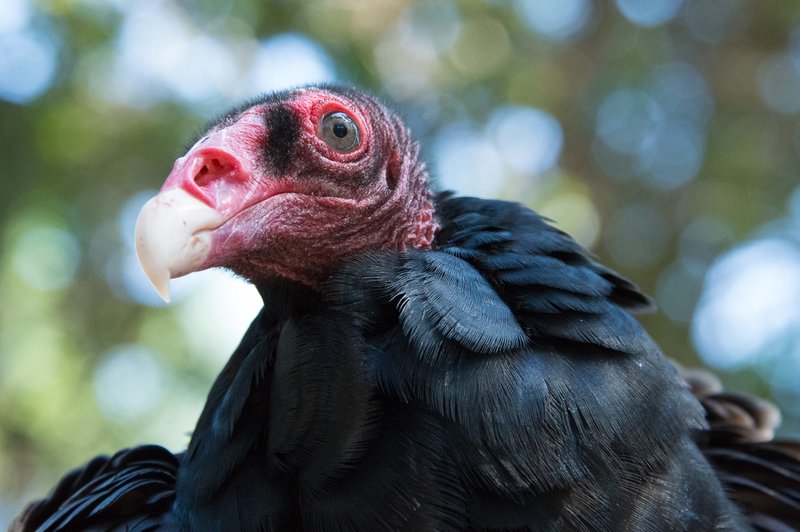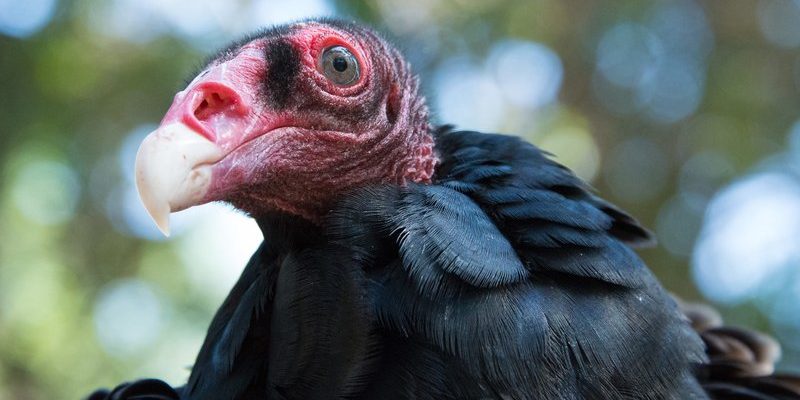
Understanding Turkey Vultures
First off, let’s get to know the Turkey Vulture a bit better. These birds are large, typically measuring about 24 to 28 inches long with a wingspan of around 6 feet. They have a distinctive look: a bald head, dark brown feathers, and a slender body. Their appearance might not win any beauty contests, but it’s designed for the job they do—scavenging.
You might be wondering about their diet. Turkey vultures are primarily scavengers, meaning they eat dead animals. They have an incredible sense of smell which helps them locate carrion from miles away. This unique ability makes them invaluable to the ecosystem as they help keep the environment clean by consuming decaying animals. Who knew such a fierce-looking bird could be such a help?
What To Do When You Spot One
Encountering a Turkey Vulture can be an unforgettable experience, but it’s essential to know how to act. Here’s the thing: you don’t really need to panic. Turkey vultures are usually more afraid of you than you are of them. They tend to be shy and will often fly away as soon as they sense human presence. If you spot one, simply observe from a distance rather than approaching it.
If you’re fortunate enough to see one perched, take a moment to appreciate this majestic bird. Turkey vultures can often be seen sunning themselves with their wings spread out. This behavior helps them warm up before flight and dry off if they’ve been in the rain. Taking a picture from afar can create a lovely memento of your encounter, but remember to keep your distance to avoid stressing the bird.
Do Not Approach or Disturb
While Turkey Vultures are generally non-aggressive, it’s still important to respect their space. Approaching a turkey vulture too closely may provoke an unwanted reaction. They may hiss or make loud noises to warn you off. If they feel threatened, they could even use their sharp beaks to defend themselves.
It’s best to keep a safe distance of at least 50 feet. This way, you’ll not only avoid upsetting the bird but also allow yourself a great view. Grab your binoculars if you have them—this helps you see the details without intruding on their space.
What If You Encounter a Turkey Vulture with a Problem?
Sometimes, you might spot a Turkey Vulture that seems to be in distress, such as one that’s injured or unable to fly. This can be concerning. Here’s what you should do: avoid trying to handle the bird yourself. Instead, contact a local wildlife rehabilitator or animal rescue organization. They have the expertise and resources needed to help the bird safely.
While waiting for professionals to arrive, keep a reasonable distance. It’s tempting to get closer for a better look, but interfering can stress the animal further. If necessary, you can observe to ensure the animal stays safe from predators or additional dangers nearby.
Understanding Their Role in the Ecosystem
Turkey Vultures may not be the cutest birds out there, but they hold an essential role in our environment. By consuming dead animals, they help prevent the spread of disease and keep ecosystems running smoothly. Think of them as nature’s garbage collectors, making sure everything is in balance.
Their scavenging habits also support other wildlife. For instance, once vultures have eaten, they leave the remains for smaller scavengers, like raccoons or certain insects. This chain of life highlights the interconnectedness of species, reminding us how every creature plays its part in the circle of life.
Safety Considerations
Now, you might wonder if Turkey Vultures pose any safety risks. Generally, they are harmless to humans. However, as with any wild animal, there are some precautions to keep in mind. Avoid feeding them; it can lead to dependency on humans for food, which is not healthy for them.
Also, be cautious if you encounter them near roadways. They often feast on roadkill and can be found in dangerous areas. So, if you see one near a road, drive carefully and give them space. If you notice several vultures gathering, it may be a sign of something on the highway, so stay alert!
Encountering a Turkey Vulture in the wild can be an awe-inspiring experience. By understanding their habits and knowing how to respond, you can appreciate these remarkable birds without causing them stress. Remember to keep your distance, enjoy the view, and consider their important role in nature. Who knows? You might even find yourself looking forward to your next wild encounter with these unique scavengers. Happy birdwatching!

